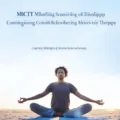Behavior therapy is a type of psychotherapy that focuses on changing undesirable behaviors by understanding and modifying the thought patterns that drive them. It’s a practical approach that can be highly effective for adults dealing with various psychological disorders or behavioral issues. In this article, we will explore over 15 behavior therapy techniques and worksheets that adults can use to improve their mental health and well-being.
Understanding Behavior Therapy
Before diving into the techniques, it’s important to understand what behavior therapy entails. It is rooted in the principles of behaviorism, which suggests that all behaviors are learned and can therefore be changed. The therapy aims to identify and help change potentially self-destructive or unhealthy behaviors.
Cognitive Behavioral Therapy (CBT)
Cognitive Behavioral Therapy, or CBT, is one of the most commonly used techniques in behavior therapy. It focuses on identifying and changing negative thought patterns that affect behavior and emotions. The key principle behind CBT is that our thoughts, not external events, affect the way we feel and act.
Dialectical Behavior Therapy (DBT)
Dialectical Behavior Therapy is another effective technique, particularly for those struggling with emotional regulation or borderline personality disorder. DBT combines standard CBT techniques with concepts of distress tolerance, acceptance, and mindful awareness largely derived from Buddhist meditative practice.
Self-Monitoring and Journaling
Self-monitoring is a simple but powerful technique where individuals keep track of their behaviors, triggers, and feelings. Journaling complements this by providing a space to reflect on thoughts and emotions, which can help identify patterns and areas for improvement.
Relaxation and Stress Reduction Techniques
Techniques such as deep breathing, progressive muscle relaxation, and guided imagery can help reduce stress and anxiety, which are often at the core of problematic behaviors.
Exposure Therapy
Exposure therapy is a process where individuals confront their fears in a controlled, safe environment. It is particularly useful for treating phobias and obsessive-compulsive disorders.
Positive Reinforcement
Positive reinforcement involves rewarding oneself for any progress made towards changing a behavior. This can increase motivation and the likelihood of sustaining the desired behavior over time.
Role-Playing
Role-playing allows individuals to practice new behaviors in a safe setting before implementing them in real-life scenarios. This technique can be particularly helpful in improving social skills and communication.
Behavioral Activation
Behavioral activation is a technique used to overcome depression by encouraging individuals to engage in enjoyable activities to improve their mood and reduce avoidance behaviors.
Assertiveness Training
Assertiveness training can help individuals learn to express their needs and feelings in a respectful yet firm way, which can improve their interpersonal relationships and self-esteem.
FAQ Section
What are behavior therapy techniques?
Behavior therapy techniques are strategies used to modify maladaptive behaviors through the systematic application of learning principles and techniques. They include CBT, DBT, self-monitoring, exposure therapy, and more.
Can behavior therapy be self-administered?
While self-help strategies can be beneficial, it is often recommended to seek the guidance of a licensed therapist when engaging in behavior therapy. Some techniques, however, can be practiced independently with the help of worksheets and guided materials.
How effective is behavior therapy for adults?
Behavior therapy has been shown to be highly effective for adults, especially for treating anxiety, depression, and certain personality disorders. Its efficacy depends on the individual’s commitment and the specific techniques used.
Are there any online resources for behavior therapy worksheets?
Yes, there are many online resources where you can find behavior therapy worksheets. These can be used to supplement therapy or as part of a self-help program.
What is the difference between CBT and DBT?
CBT focuses primarily on changing negative thought patterns to alter behavior and emotion, while DBT incorporates additional techniques like mindfulness and emotional regulation to manage intense and difficult emotions.









